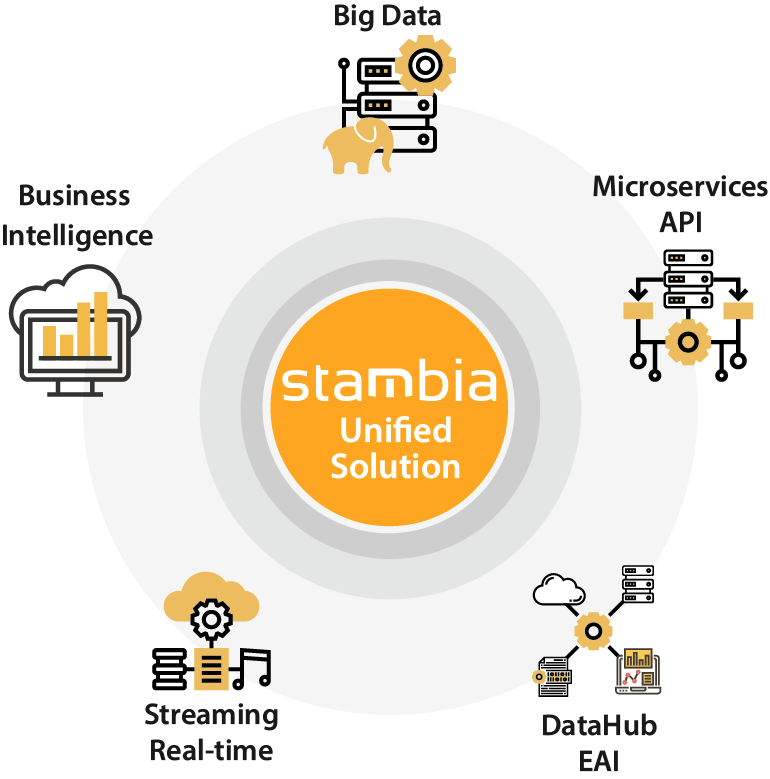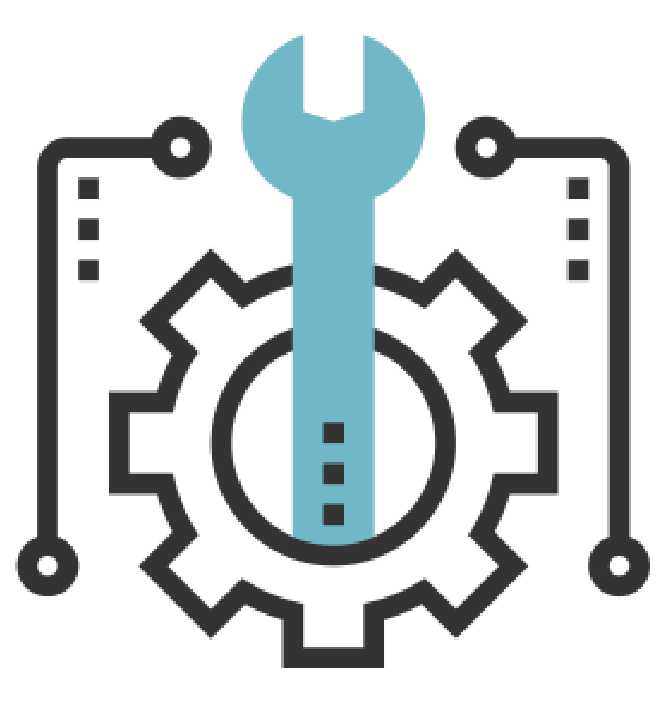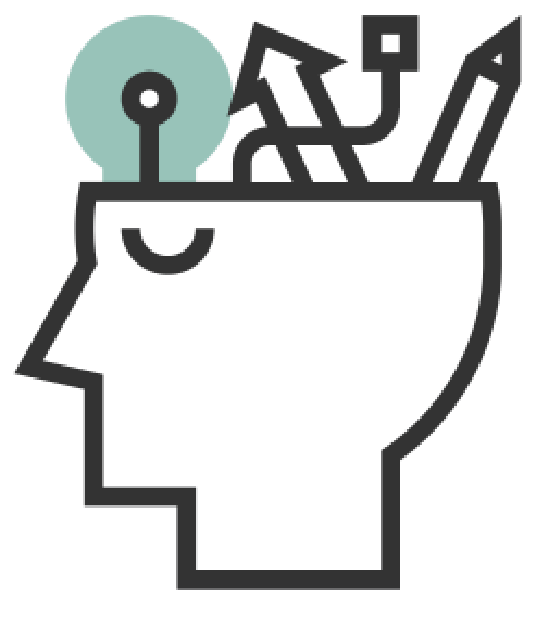 Stambia
The solution to all your data integrations needs
Stambia
The solution to all your data integrations needs

New challenges around data
The data now at the heart of the IS
The rise of digital technology in our societies has created profound changes in our relationship with data. In the past, data was a technical consequence of our applications. It then became useful in the post-activity analysis (Business Intelligence). It is now at the heart of business needs. It is the source of new services and no longer the result.
How to take full advantage of this economic and social material?


Diversity, volume and new usages
As a result, this data has become a gold mine and has multiplied in volume and the formats have become plethorical. More and more usages have been created around it, bringing new needs, new applications, and consequently a multitude of silos within the Information System.
Now, how to master, govern and streamline data and algorithms?
Be fast, agile & flexible
Finally, this rise in data has been accompanied by an acceleration of innovation, creating an ever increasing need for agility and flexibility. Business teams are advancing quickly, technologies evolve at an accelerated pace.
How to follow the trend, be responsive and innovative, while building sustainable information systems over time? How to combine agility and industrialization?

How is Stambia responding to these challenges?
Unified solution
Organizations must de-silo information systems. This involves mechanisms of exchange or consolidation of data that can take different forms:
- Batch mode exchanges on large volumes, for application migrations or massive initialization or aggregation loading.
- Real-time ingestion of external data or data from probes or connected objects
- The exposure of data to internal or external third parties, in the form of APIs, compound web services or micro services
- Simple interaction between applications
- Control or audit of data and processes
Many organizations are coming up with a variety of solutions to address these needs, creating additional risks and costs by increasing the number of project solutions and stakeholders.
Stambia offers a new opportunity: to have a single, unified solution to address all the issues around data . The Stambia solution has a unified architecture, a unique way to develop, maintain and put into production. To know more about this concept, go to the page "universal mapping".
Evolutive architecture
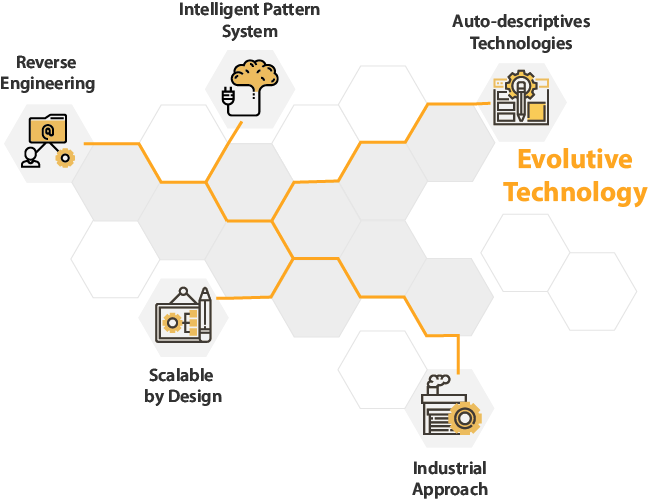
Organizations have to deal with ever-changing technical and application environments. Business users are multiplying initiatives because there are many opportunities available to them all the time: new applications, new technologies, the need to innovate ... This requires greater responsiveness and flexibility, especially around the use of data.
The Stambia solution has been designed to adapt very quickly to novelties. Its mode of operation and its architecture, based on templates and evolutive technologies, allow it to evolve very quickly . A new component (connectivity or functionality) can be made available to clients or partners, or developed by them, within a few days to a few weeks. This will usually take several months with more traditional and less flexible solutions.
Also, the Stambia solution is adaptable by the users themselves. R & D is not necessary to evolve Stambia. Our customers and partners are able to quickly move forward and share, if they wish, with other users (Stambia community) the changes they have made.
Agility on projects has become a habit for users of the Stambia solution.
A controlled cost trajectory
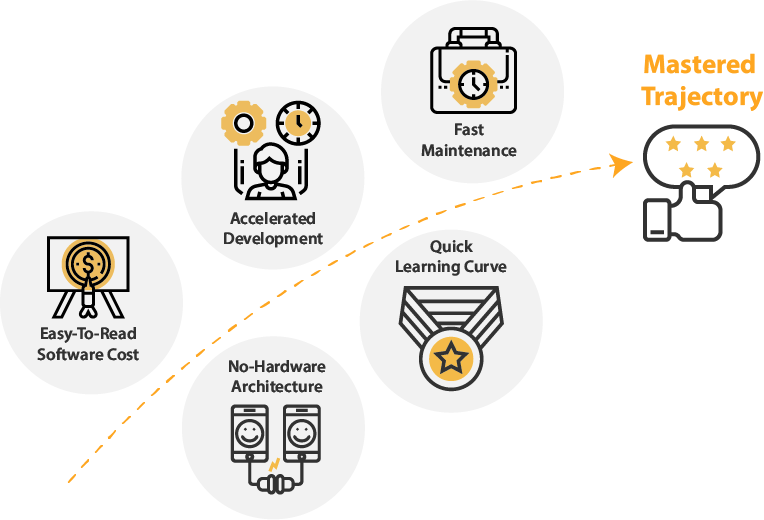
Reducing or optimizing resources and costs is a key element in digital transformation projects.
Project costs can be measured in five main components: software, hardware (power), development and implementation, maintenance and learning curve.
The human factor is important because it affects three components: the ability to implement projects quickly (development), the maintenance of projects after delivery, and the speed of handling solutions (ability to learn quickly).
On this point Stambia reduces development time (up to 80% reduction depending on the project) and maintenance (up to 300%).
Stambia's ability to unify data integration types also helps improve the learning curve (or experience curve) by allowing developers to move from one type of integration to another (Batch, web services, Big data, ...) with the same solution.
Added to this position are software and technical resources (hardware, network, cloud resources ...). Stambia does not require dedicated hardware to work, the technical cost decreases implicitly.
Finally, the Stambia pricing model is based on the "development effort" (number of developers) and not on the number of resources (CPU, volumes ...) in production, thus the cost of the projects becomes readable and controlled .
Customer support and satisfaction
Satisfying our customers and respecting our commitments is the basis of our firm's decision criteria. We are committed to fulfill the daily needs of our users, both in the use of our products, and in the relationship we have with them. We share here with you some of the daily marks of gratitude that we have received:
Support team reactivity?
Between 15 minutes and 3 hours
"With Stambia, we rediscovered what the word support means"
Development productivity?
Between +30% and +500%
"Today, our development time has been reduced by 80%, thanks to the implementation of the Stambia solution"
Performance improvements?
Optimum (ELT mode)
"We were quickly amazed by the speed, power and efficiency of the solution."
Our values
Our values are the foundation of your success. It is because we are attached to it since the beginning that we can bring the level of result expected by each of our customers.
Bring value
Most of the Data Integration solutions, usually, are meant to do the same job, but in each area, we always make an extra effort to provide a better experience to our customers.
Our Motto: Better is always better than what is Best. We always look for opportunities that raises the 100% bar, thus bringing value to our customers everytime.
Adaptability
We understand the challenges faced by our customers, as well as the technological evolution, thus we are more reactive and fast.
Providing the simplest and the most effective solution, that adapts to the context of each customer, comes from the agility and flexibility of Stambia solution.
Compliance with commitments
We do not promise more than we can give and respect what has been agreed.
If our users are to achieve the results they expect, we have to keep our commitments.
Think Out of The Box
Innovation makes it possible to do better, to do more and to do differently. At Stambia, the idea that brings us together is: think different & get off the beaten tracks. In this way we can find the ideas that give a new impetus to every subject we deal with.
Stambia's ecosystem and community
Stambia has an active ecosystem that is close to you!
Did not find what you want on this page?
Check out our other resources:
Semarchy has acquired Stambia
Stambia becomes Semarchy xDI Data Integration
